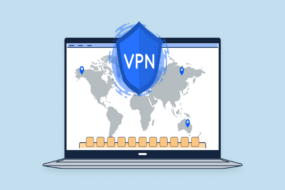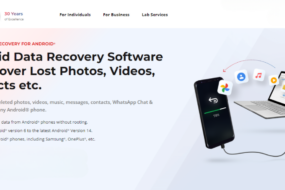For small businesses, selecting the right tools when budgets are tight may make or break profits. Unfortunately, making the selection is a more challenging process due to the abundance of software options in the market and the myriad of features available. Without proper insight, some teams find that they end up contending with indecision or end up choosing software that doesn’t perfectly fit their requirements. Although your team’s success will come down to the incorporation of many tools, online data shows that regardless of sector, data mapping software is one of the common denominators. Here’s why.
It Can Help You Build a Location-Specific Marketing Strategy

The best drawing software, especially when integrated with data mapping capabilities, can help small businesses illustrate geographic data. It allows them to efficiently visualize and analyze location-centric information, discern trends within their data, and adjust marketing strategies accordingly.
For instance, through database mapping, sales and marketing teams may choose to overlap demographic data such as age groups, income level, and lifestyle preference onto a map of the region they are trying to serve. This level of insight can provide the foundation to develop a detailed buyer persona, an in-depth description of a person, including their name, who represents your target audience, and craft messaging that is relevant to them. By understanding the demographics and preferences of your target market, small business owners can tailor their marketing for maximum impact.
It Can Support Your Business Growth

Data mapping software, or data mapping tools, contributes to your business growth in various ways, including enhancing your productivity. Data mapping empowers employees to find solutions independently when facing challenges by providing easy access to detailed information. This results in more efficient and faster processes, ensuring heightened productivity.
It Can Help You Optimize Operations and Logistics
Mapping software enables small businesses to optimize their operations and logistics. By visualizing geographic data, businesses can plan efficient routes for deliveries, manage inventory strategically, and streamline supply chain processes. This optimization contributes to cost savings, improved delivery times, and overall operational efficiency.
It Can Help You Determine The Best Physical Location
Depending on the type of business you are thinking about operating, you might consider the opportunity to open a brick-and-mortar location. On the pro side, engaging with your customers from one set location is said to open avenues for social interaction and community building. Additionally, it may offer a space for customers to come together, nurture a sense of community and belonging, and cultivate a dedicated customer base over time.
While the benefits may make sense as a part of your long-term objectives, having a small business budget means the location is everything. For this reason, successful business owners will often employ data mapping software to help them identify optimal locations for new outlets or services by considering factors such as customer density, competition, and local demographics. This ensures that expansion efforts are targeted and aligned with the business’s objectives.
It Can Help You Create A Better Customer Experience
Geographic insights from mapping software can contribute to an enhanced customer experience. Businesses can use location data to provide personalized services, such as location-specific promotions, localized recommendations, and efficient delivery services. This personalized approach can help your team build customer loyalty and satisfaction. For instance, a restaurant app could suggest nearby eateries or popular dishes based on the user’s current location. This not only enhances the user experience but also increases the likelihood of customer engagement.
The Bottom Line
The development of business software is pivotal for achieving success as it can efficiently save money and time by automating tasks and streamlining processes. When incorporated effectively, it has the potential to propel your endeavors onto the fast track to success. Expanding on the significance of location intelligence in business operations, utilizing data mapping software is a strategic move that extends beyond mere convenience. It can play a crucial role in determining the optimal physical location for a business, particularly for those contemplating the establishment of brick-and-mortar outlets.
The advantages of having a physical storefront are manifold, fostering social interaction and community building while providing a centralized space for customers. However, the success of such a venture is heavily reliant on selecting the right location. Small businesses with budget constraints recognize the paramount importance of this decision. In this context, savvy business owners leverage data mapping software to make informed choices about where to set up shop.
These software tools empower entrepreneurs to analyze various factors like customer density, competition levels, and local demographics. By synthesizing this information, businesses can pinpoint the most promising areas for expansion. This strategic approach ensures that resources are allocated efficiently, aligning with the overarching objectives of the business.
Moreover, the benefits of data mapping software extend beyond location selection to enhancing the overall customer experience. Businesses can harness geographic insights to offer personalized services, tailoring promotions, recommendations, and delivery services based on specific locations. For instance, a restaurant app can utilize location data to suggest nearby eateries or popular dishes, elevating the user experience and fostering customer loyalty.
In conclusion, the integration of data mapping software into business strategies is a multifaceted approach that not only aids in location selection but also contributes to creating a more personalized and satisfying customer experience. As technology continues to evolve, businesses that embrace these tools are better positioned to navigate the complexities of the market, optimize their operations, and propel themselves towards sustained success.
Explore Further











